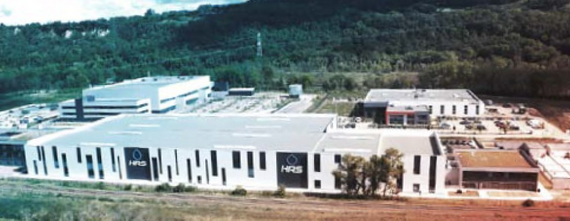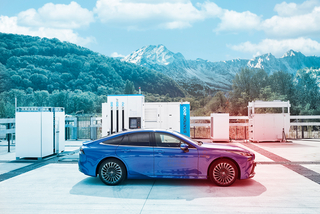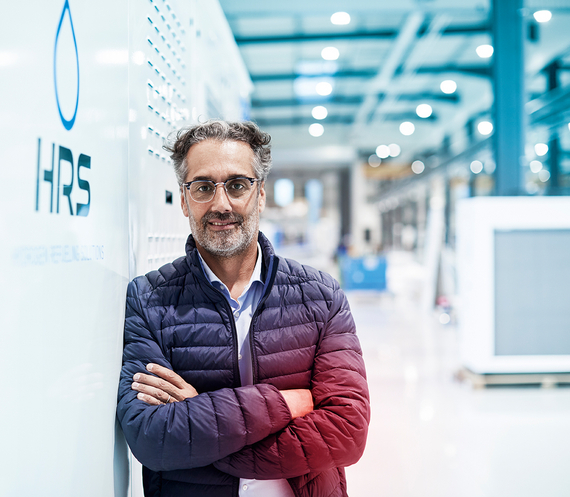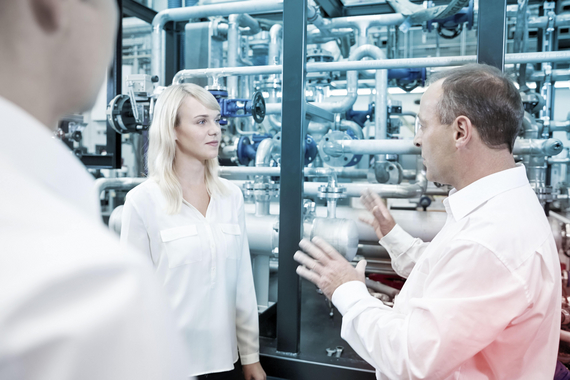Combining expertise for low emission mobility – How LAUDA supports the hydrogen industry with innovative cooling solutions
LAUDA has been working successfully with the French hydrogen refueling solution manufacturer HRS for five years. In this interview, Olivier Dhez, Deputy CEO of HRS, talks about the development of the partnership, the technological challenges and the shared visions for a low-emission future.

Bonjour Monsieur Dhez. Thank you for taking the time to do this interview. Before we get into the technical details and backgrounds, please tell us about HRS.
HRS stands for Hydrogen Refueling Solutions. We are developing, installing, and commissioning hydrogen refueling stations to refuel any type of vehicle, from light to heavy-duty. The company was founded in 2004 by Hassan Rashedi, our CEO today. The first hydrogen refueling station was designed back in 2009, but it was in 2019 that we decided to change the scale of the company significantly. For this interview, we are standing in our new factory: 14.000 m2 dedicated to manufacturing hydrogen refueling stations. Here, we can produce an output of almost 200 stations a year.
To put that into perspective, you should know that today, there are only about 200 refueling stations in all of Europe, and they have been installed over the span of 15 years. That means, with our new factory, we can produce the equivalent output of the past 15 years within only one year.
Not everyone is familiar with the requirements of hydrogen refueling. Can you give us a rundown on why cooling systems are needed for the process?
Hydrogen has the unfortunate habit of heating up when it gets compressed. This fact comes into play at two points in the process. For starters, we compress the hydrogen for storage. Here, we need LAUDA technology to cool a) the compressors and b) the hydrogen itself, so we can store it under higher pressure. Later, we need cooling technology for the refueling process itself. When you start refueling, hydrogen is pushed into the vehicle’s tank. When you want to refuel quickly, you have to do it under high pressure, so again, the hydrogen gets compressed and heats up. For safety reasons, temperatures in the tank cannot go higher than 85 °C. To ensure this, the hydrogen is pre-cooled. To refuel a car at 700 bar with one kilo flow per minute, you need to cool down the hydrogen to -40 °C. The LAUDA process cooling system helps us do that.
However, the compressing and the cooling down use a lot of energy. We want to make refueling stations even more efficient. This is the third part in which we collaborate with LAUDA, to see what we can do today to develop more efficient systems for tomorrow.


You just touched on future developments. Can you go into more detail about the vision and where you are going with this?
The challenge today for us is to build larger refueling stations to be able to refuel more and more vehicles, but also to anticipate the need to refuel faster in the future.
Currently, we are able to refuel at one kilo per minute at 700 bar, as I said, but we want to go up to ten times that. Tomorrow, the trucks and heavy-duty vehicles will have larger tanks with higher pressure, so we need to anticipate that. We want to work with LAUDA on that new challenge. To be able to develop these new technologies, the next generation of refueling, LAUDA, HRS, and other companies applied for EU funding, which was granted under the project name RHeaDHy.
Today, the big challenge for us all, for society, is to reduce the emissions of CO2.
Hydrogen mobility will be ONE way to reduce emissions for mobility. It’s not the only way, but one way. It can help us go towards a better world by emitting less CO2 for mobility, especially for heavy-duty and intensive usage, where hydrogen makes sense.
Why did you choose LAUDA as a partner for your journey? Can you tell us how this partnership came to be?
Interestingly, this story goes back to times before HRS existed. Some of our engineers had worked with LAUDA in their previous company. When they later joined HRS and were looking for a partner for the cooling side of things, they mentioned LAUDA and said firmly:
‘We had a good experience with them in the past, we need to continue to work with them.’

That’s what we did. We started working together in 2019 when we designed our first refueling station.
Up to now, we have produced more than 50 refueling stations, all of which are equipped with LAUDA cooling systems. We were also sure that LAUDA would be the right choice to support us in co-development and in developing more advanced technology to tackle the future needs of refueling stations.
Our goal is to multiply the speed of the refueling flow by ten; an important factor in that is the cooling. We have that vision with LAUDA to work on a better future by decarbonizing mobility.
Learn how our solutions can make your processes more efficient

In accordance with the principle of "modular engineering,” LAUDA plans and builds systems precisely to the customer's wishes: process-oriented, made-to-measure and precisely following the regulations, and compliant with the strictest safety standards. Within the temperature range from -150 to 550 °C, LAUDA systems heat and cool with an accuracy of up to one tenth of a degree Celsius. Since the requirements for constant temperature equipment are continuously growing, the modern LAUDA heating and cooling modules are also flexible as far as expansion and modification are concerned.
Project planning is our specialty. Working closely together with our customers, we design customized systems during the planning process. The keyword is modular engineering. With proven building blocks that are put together for the application, you get custom-tailored solutions. Matching of target and actual values requires precise planning of all interfaces. Each individual LAUDA planning component has been proven many times over and undergoes continuous further development. This is how we can guarantee a high quality standard.
Find the right device for your application
There are already three products on your comparison list.
To compare other products, please delete one of the products on your comparison list.